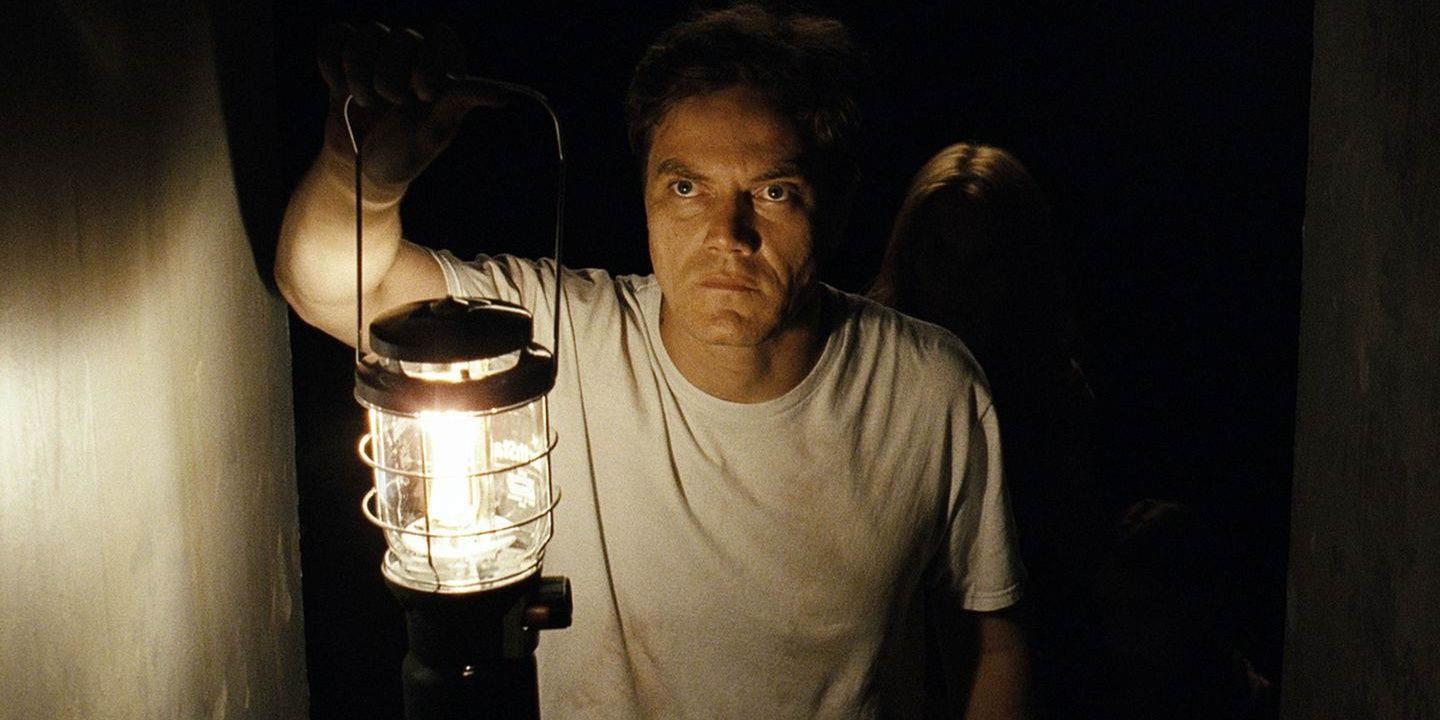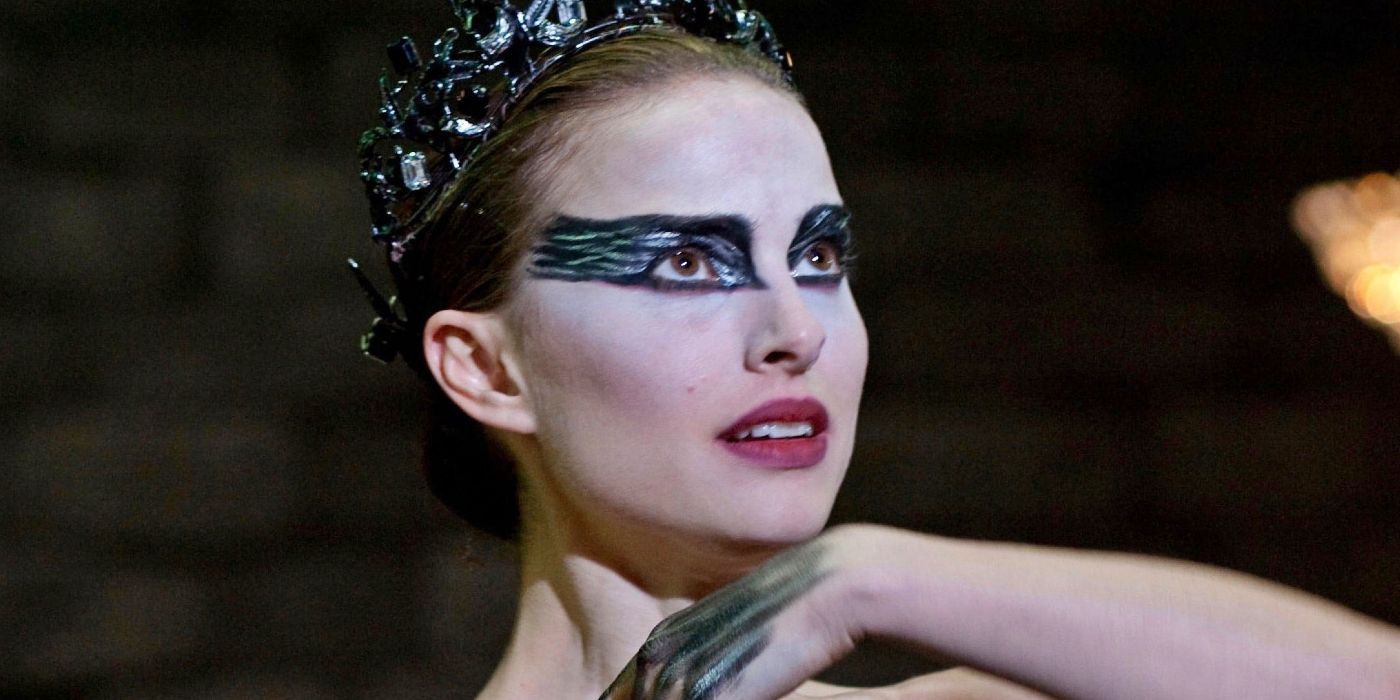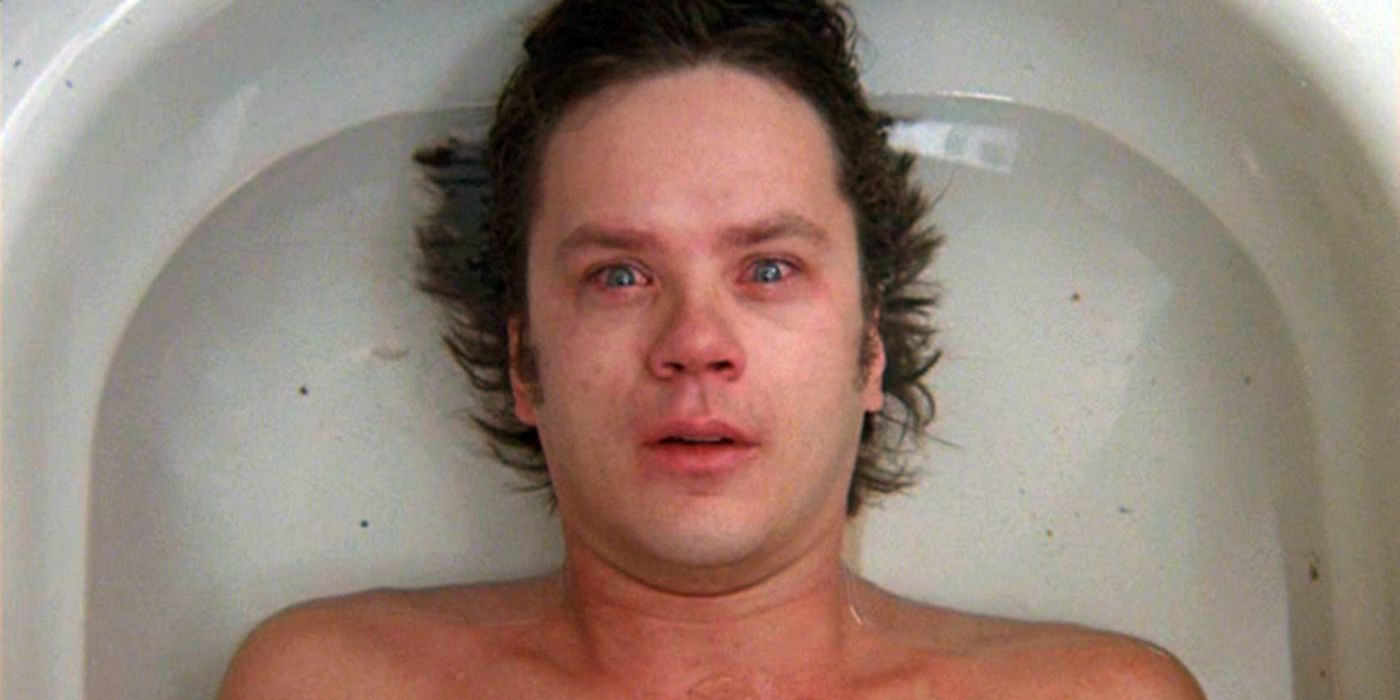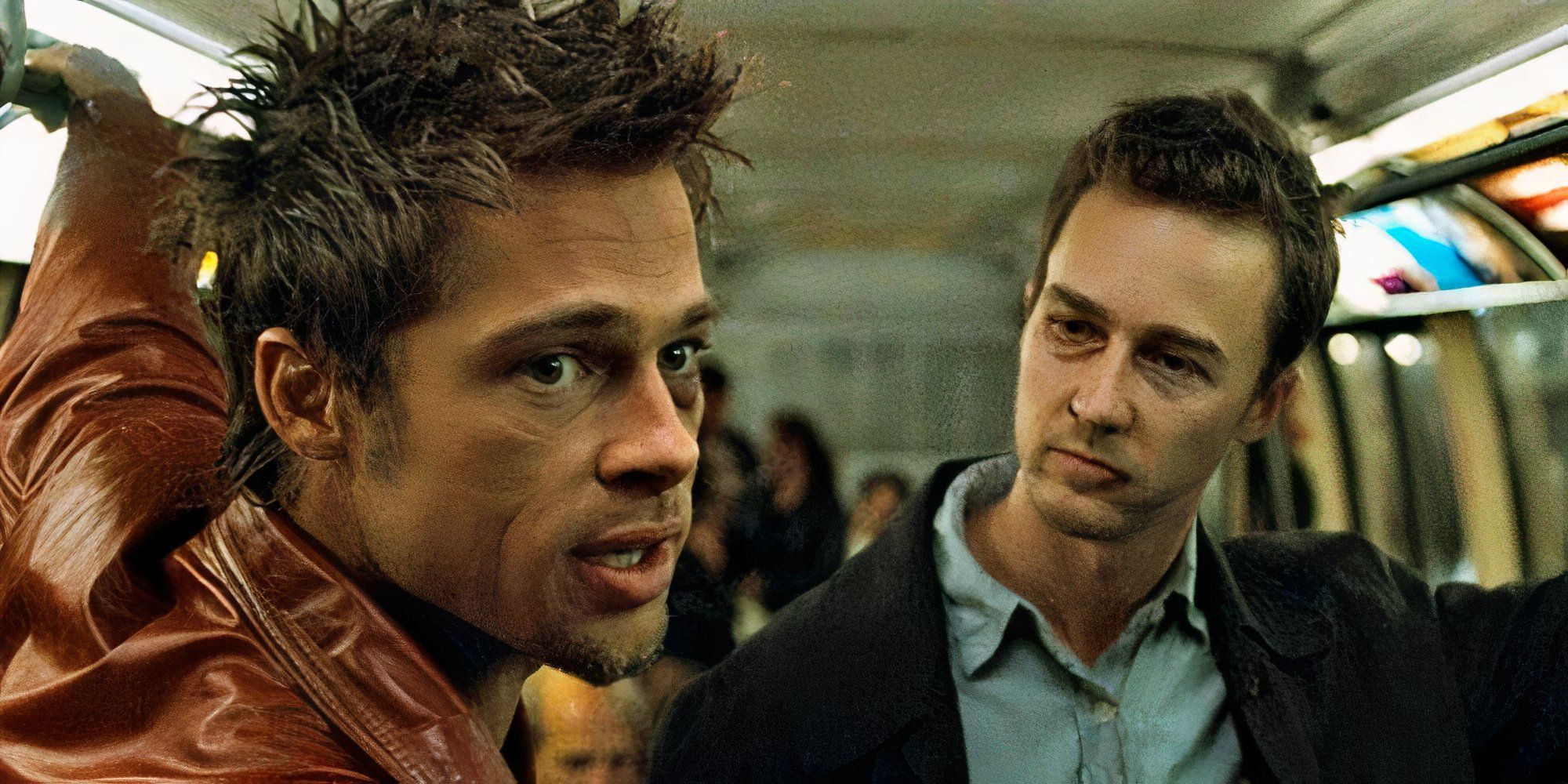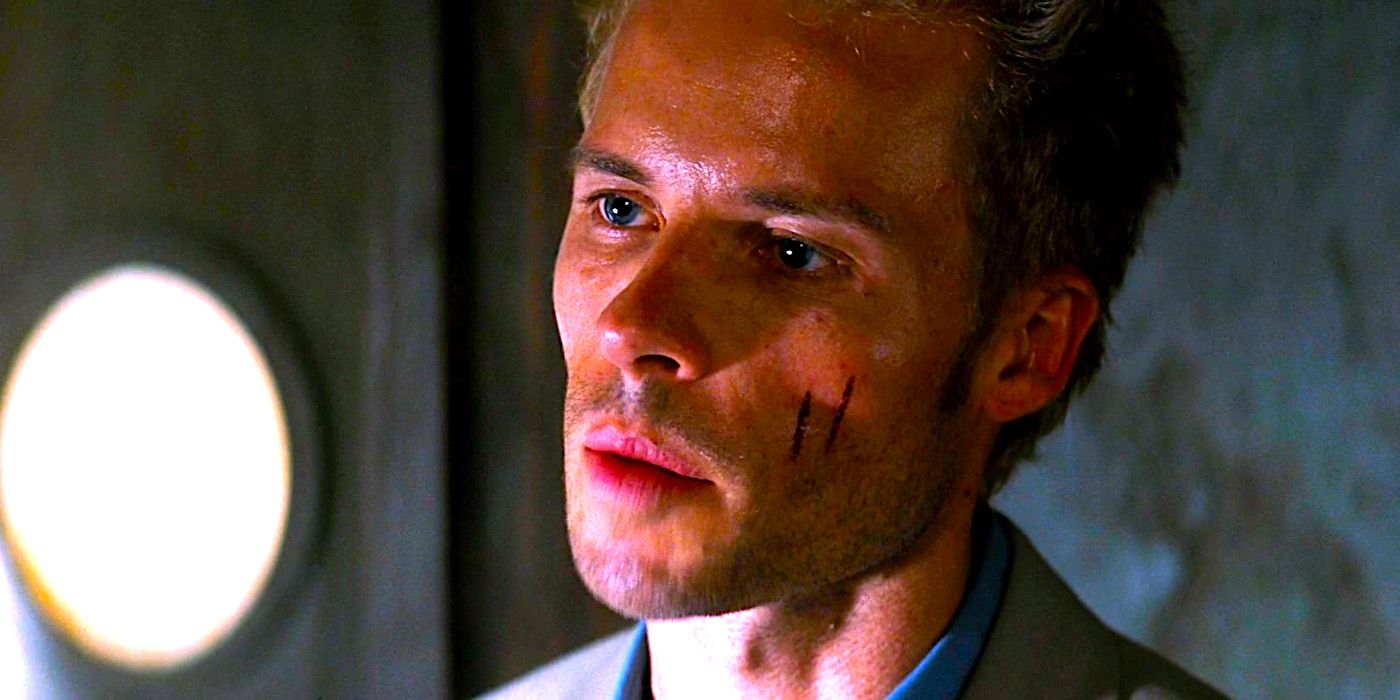Unconventional thrillers that shake up the genre can have audiences on the edge of their seats, unsure of how things will play out in the end. While many tropes and cliches in the thriller genre mean observant viewers will be quick to uncover the mystery and decipher how things will pan out before the credits roll, some actors, directors, and writers have toyed with these conventions to produce some truly unconventional movies. In some instances, these experiments were so influential that they left an undeniable mark on cinema as a whole.
The best thrillers of all time were inscrutable stories that confounded audiences’ expectations in unique and interesting ways. There’s often nothing better than when a movie surprises viewers in a good way and when a well-worn genre trope gets subverted in a manner never before seen on screen. Unconventional thrillers that change up the genre were important to keep filmmaking fresh and ensure that no matter how much of a film lover a viewer thought they were, a new movie still had the power to surprise and enthrall them
10 Hard Candy (2005)
Directed by David Slade
The psychological thriller Hard Candy was a disturbing but highly engaging story that subverted traditional power dynamics. With Elliot Page as 14-year-old Hayley Stark and Patrick Wilson as the 32-year-old sexual predator Jeff Kohlver, at first glance, Hard Candy looked set to follow the well-worn structure of a young girl falling prey to a much older sexual predator. However, the narrative shifted the predator-victim dynamics as Hayley was revealed to be far more cunning than she first appeared as she sought her vengeance and tortured this would-be child abuser.
Hard Candy’s minimalist setting, which occurred entirely at Jeff’s house, created an intense, claustrophobic atmosphere that added to the film’s emotional impact. Without the use of typical thriller tropes, such as chase sequences or over-the-top action set pieces, Hard Candy focused on verbal and emotional psychological torture as Haley slowly broke Jeff down and made him admit to his horrid deeds and impulses. With minimal background context for Haley’s actions, Hard Candy confounded audience expectations and made for a high-tension, surprising viewing experience.
9 Take Shelter (2011)
Directed by Jeff Nichols
Writer and director Jeff Nichols delivered a psychological thriller that truly lived up to that genre’s name, as the entire narrative was propelled by the troubled mind of its lead character. With Michael Shannon as Curtis LaForche, a young father experiencing apocalyptic visions who believed he must protect his family from an incoming storm, Take Shelter explored mental health and family dynamics in an unusual and effective way. With a history of mental illness, Curtis must grapple with his uncertainty as to whether what he experienced was genuine or if he, like his mother before him, was experiencing paranoid schizophrenia.
As a highly emotional film, Take Shelter highlights how Curtis’s mental anguish had a ripple effect on his wife and child, even leading to the loss of his job. Jessica Chastain also brought incredible vulnerability to her role as Curtis’s wife, who struggled to understand his unusual behavior as his visions entrenched his life further. Take Shelter was a disturbing psychological thriller that addressed how quickly a community can turn against a man whose family history meant his sanity was always up for debate.
8 Nocturnal Animals (2016)
Directed by Tom Ford
Nocturnal Animals stood out from other thriller movies due to its unconventional structure, which blended its two narratives in strange and effective ways. With a story-within-a-story structure, director Tom Ford powerfully adapted the novel by Tony and Susan by Austin Wright to juxtapose a writer’s fictional work with the real dynamics of his previous marriage. As Nocturnal Animals shifted between the “real world” inhabited by Amy Adams and the novel written by her estranged ex-husband, played by Jake Gyllenhaal, themes of guilt, revenge, and unresolved trauma emerged.
This dual narrative showcased the way that fiction could be used as a form of psychological revenge, as Nocturnal Animals became a complex and emotionally fraught work of bleak romance. Director and fashion designer Tom Ford brought the same striking sense of visual style as his debut, A Single Man, to Nocturnal Animals, as he focused more on building atmosphere tension than high-octane action. As the fickle boundaries between art and real life began to blur, Nocturnal Animals became an almost dreamlike work.
7 Under the Skin (2013)
Directed by Jonathan Glazer
Under the Skin was a sci-fi thriller unlike anything that came before or after it that stood as one of the most underrated movies of 2013. Although it was a box-office bomb at the time of its release, this work by Jonathan Glazer featured a mesmerizing performance from Scarlett Johansson as a seductive otherworldly entity who utilized her alluring appeal to prey on unsuspecting men in the Scottish countryside. With a minimalist style and slow-building tension, Under the Skin was a dark exploration of the human condition that oozed idiosyncratic cinematic style.
As a true visual showcase and one of Johansson’s best sci-fi performances, Under the Skin was a challenging film that may not appeal to all viewers, but those who connect with its unique nature will be blown away by its incredible power. By embracing the hideous beauty of total annihilation, Johansson carried this odd narrative with minimal dialogue spectacularly. A truly ethereal viewing experience, Under the Skin was a unique film that critics praised but remained woefully undervalued by mainstream viewers.
6 Drive (2011)
Directed by Nicolas Winding Refn
The highly stylized aesthetic and atmosphere of Drive was the perfect blend of violence, music, and neo-noir imagery to produce a film that walked the fine line between action and artfulness. With Ryan Gosling as an unnamed Hollywood stunt driver who moonlit as a getaway driver, Drive rose above the typical action movie spectacle to become one of the best movies of 2011. With an acclaimed soundtrack by Cliff Martinez, the fascinating blend of ambient, electronic, and retro sounds meant that Drive had a unique feeling and unique identity whose music was just as important as its narrative.
With a compelling story in which Gosling was determined to help his neighbor and her young son from her ex-con former husband, Drive had a slow-building and well-paced narrative that harkened back to an earlier era of cinema. Albert Brooks also excelled in the supporting role of Bernie Rose, the ruthless mobster who hired Gosling as his driver. Overall, Drive was one of the most interesting action thrillers of the 2010s that proved it was possible to balance the more bombastic aspects of this genre with thoughtful and artistically fulfilling narratives.
5 Black Swan (2010)
Directed by Darren Aronofsky
Black Swan was a psychological thriller that delved into the cutthroat world of professional ballet and the deceit and jealousy that intense ambition brings out in people. With a plot surrounding a production of Tchaikovsky’s Swan Lake and Fyodor Dostoevsky’s The Double as a major inspiration, Black Swan brought together the intellectualism of ballet and literature to create a thriller that kept audiences on the edge of their seats. As director Darren Aronofsky explored ideas surrounding doppelgängers, identity, and a tour-de-force performance from Natalie Portman, he produced one of the most fascinating thrillers of the 21st century.
With intense passion and an overbearing melodramatic atmosphere, Black Swan was a visually complex and often creepy look at a committed dancer’s grasp on reality slowly unraveling as she’s overwhelmed by the pressure of her role. With Mila Kunis as the rival dancer and titular Black Swan in the production, the lines between reality and fantasy began to blur in a sexually charged and overwhelming story. Black Swan was a thriller unlike any other and signaled Aronofsky as one of the most unique writer-directors working in Hollywood today.
4 Jacob’s Ladder (1990)
Directed by Adrian Lyne
Adrian Lyne’s disturbing psychological thriller Jacob’s Ladder was a profoundly intense cinematic experience whose outrageous imagery meant it was not for the faint of heart. With Tim Robbins as a dissociated Vietnam War veteran dealing with the death of his child, Jacob’s Ladder cataloged a man’s descent into madness and difficulties deciphering what was real and what were delusions. As an exploration of trauma and PTSD, Jacob’s Ladder peeled back the curtain of those experiencing psychosis and the fear and horror they encountered.
Through surreal imagery and vivid nerve-shattering sequences, Jacob’s Ladder was a cult favorite that utilized surrealism and Orwellian imagery. As a truly hard-to-define film, Jacob’s Ladder blended aspects of arthouse cinema, war movies, and Lynchian horror to push audiences out of their comfort zone and get to the very heart of the human capacity for fear. While the intensity of Jacob’s Ladder may turn some viewers off, its unique nature inspired many subsequent thriller and horror movies, including the Silent Hill series.
3 Fight Club (1999)
Directed by David Fincher
The influence of Fight Club was so far-reaching that viewers watching it today may not realize just how influential it was. When the twist that Tyler Durden (Brad Pitt) was a figment of Edward Norton’s character’s imagination the entire time was revealed, Fight Club left viewers’ jaws on the floor as it recontextualized the entire narrative. Not only this, but the style, themes, and even quotes from Fight Club meant it powerfully represented the disillusionment and disconnection audiences increasingly felt from mainstream culture and capitalism at the end of the 1990s.
Fight Club was a thriller that dismantled notions of masculinity as its mindless glamourization of violence showcased the soullessness at the center of male aggression. With rich philosophical depth, Fight Club captured the essence of Chuck Palahniuk’s novel, even if some viewers continue to miss the satirical nature of its story. As a socially aware thriller that got right to the heart of contemporary anxieties and burdens of societal expectations, Fight Club influenced everything from Mr. Robot to Joker.
2 Memento (2000)
Directed by Christopher Nolan
From superhero movies to sci-fi spectacles, director Christopher Nolan has left an undeniable impact on every genre he has tried his hand at. This was certainly the case for Memento, an experimental thriller about a man (Guy Pearce) suffering from a form of amnesia that means he cannot form new memories. Using a non-linear narrative, the unique nature of Memento left audiences feeling as profoundly lost and bewildered as its protagonist.
With two narratives, one shown chronically in black-and-white and another in color that was shown in reserve, audiences slowly pieced together the puzzle of Leonard Shelby, who was trying to hunt down the man he believed killed his wife. Through photographs, messages, and even tattoos, Leonard has left himself messages with the intention of helping him solve this complex mystery. Memento’s unique style rewarded intense concentration from viewers as they made sense of its complex and fractured narrative.
1 Mulholland Drive (2001)
Directed by David Lynch
Director David Lynch has always pushed audiences out of their comfort zones and toyed with genre conventions to produce some of the strangest and most compelling movies ever made. Mulholland Drive encapsulated this reputation, perhaps Lynch’s most cryptic, dreamlike, and surreal feature film, which explored the uncertain nature of selfhood mixed up with a narrative of blended identity. The stature of Mulholland Drive as a trailblazing movie has only grown in the years since its release, even being voted the best movie of all time in a 2016 BBC poll.
As a unique neo-noir full of twists and turns, the arcane nature of Mulholland Drive meant it offered new meaning with each subsequent viewing. Mulholland Drive was originally intended as a television pilot, which added to its open-ended and mysterious aesthetic. As a film that brought together a dreamlike atmosphere, a Hitchockian sense of mystery, and the unique auteur style of David Lynch, Mulholland Drive was one of the most unconventional thrillers ever produced for mainstream audiences.
Source: BBC



